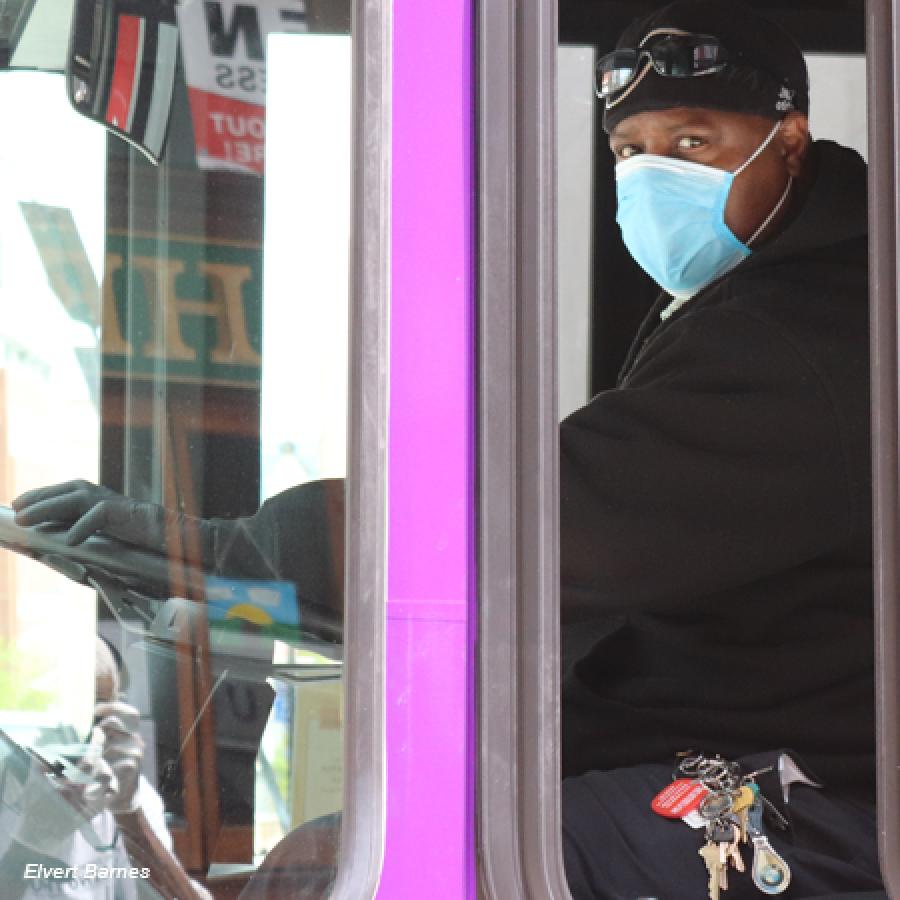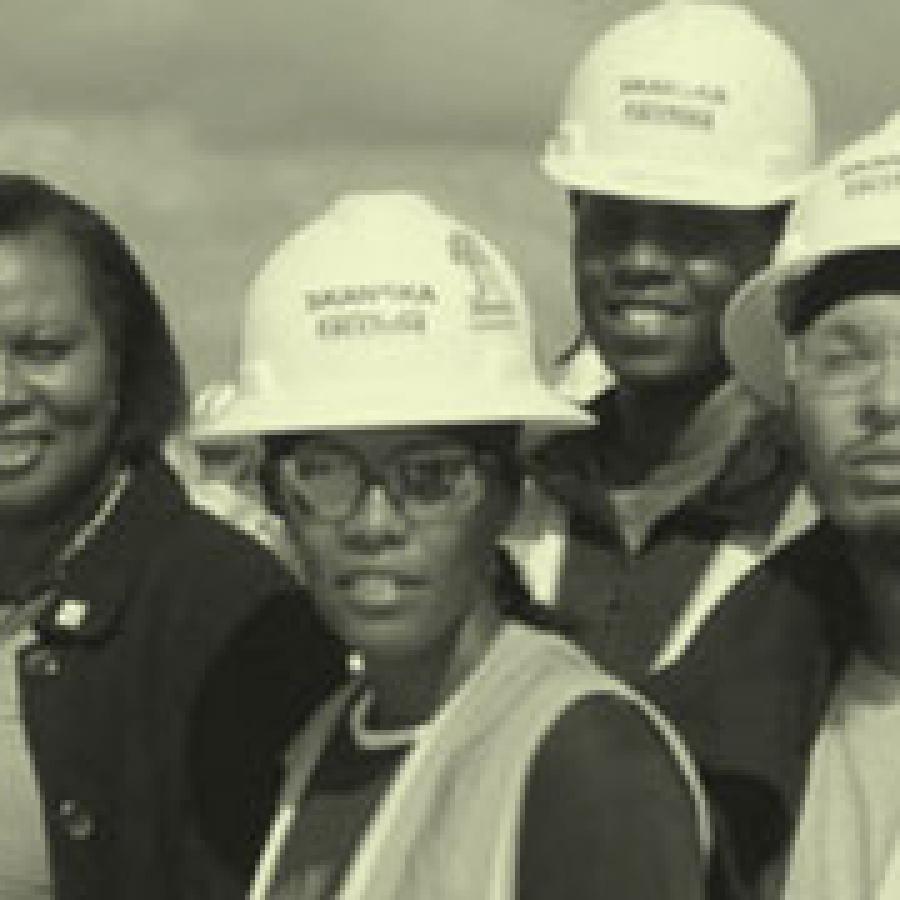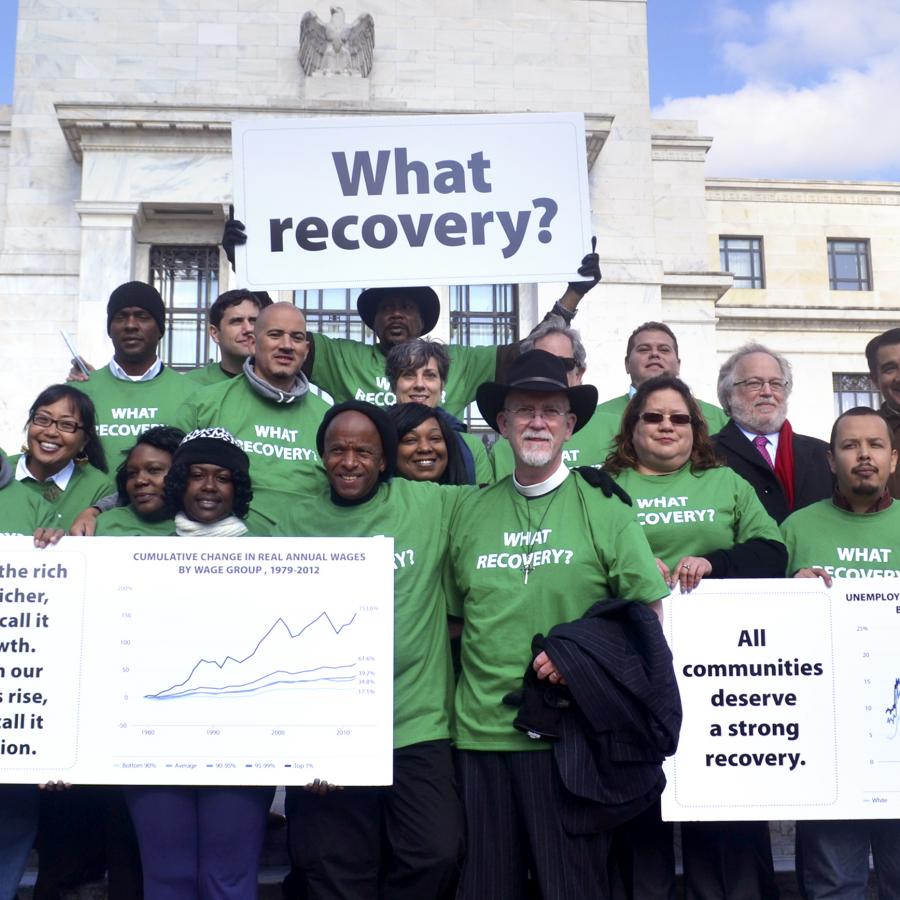Employment: In an equitable economy, everyone who wants to work would have a good job.
Insights & Analyses
- In 2022, Black and Native American working-age residents had less access to employment opportunities and the highest rates of joblessness, at 28 percent and 38 percent, respectively.
- Between 1980 and 2022, the overall labor force participation rate for those at or above 200 percent poverty, increased from 78 percent to 86 percent, but it remained about the same for Native American workers, rising by only two percentage points (from 79 to 81 percent).
- Since 1990, the labor force participation rate for women has remained below that of men, but the gap has been closing. In 2022, Latinx women had a labor force participation rate of 70 percent, compared to 88 percent for Latinx men.
- The employment-to-population ratio for Latinx immigrants increased from 59 percent to 75 percent between 2000 and 2022. In 2022, US-born Black and Native American adults had the lowest employment-to-population ratios, at 70 percent and 62 percent, respectively.
Drivers of Inequity
A variety of historical and contemporary factors cause Black, Native American, Latinx, and other workers of color to experience unemployment at much higher rates than white workers. Employer discrimination against Black workers starts at the early stages of the hiring process. A 2021 study, found that applications with distinctively Black names were about 10 percent less likely to get a call back than comparable applications with distinctly white names. In addition, racial segregation and disinvestment mean that students of color have far less access to well-resourced, high-quality schools. Transportation, affordable childcare and housing near job centers, and credit checks are also significant barriers to employment. Finally, racist policing practices and criminal legal system disproportionately incarcerate Black and Latinx men who then face employer discrimination due to their criminal records
Strategies
Grow an equitable economy: Policies to reach full employment for all
- Grow new good jobs by making smart investments in infrastructure projects, supporting economic development strategies to grow high-opportunity industries, and helping entrepreneurs of color start and scale-up their businesses.
- Reduce employment barriers for people with records by "banning the box" asking about conviction history on job applications (for private as well as public employers).
- Connect unemployed and underemployed workers to the jobs created by new development through targeted local hiring, community workforce agreements, and community benefits agreements.
- Invest a portion of infrastructure investments in job training.
- Implement sector-focused workforce training and placement programs and apprenticeships that create pathways to good jobs for workers with barriers to employment.
- At the federal level, institute a federal jobs guarantee, dedicate 1 percent of infrastructure investments to a fund for inclusive job and contracting supports, set aside a share of public contracts for businesses owned by people of color to mirror area demographics, and ensure that releasees from federal prison receive essential identification documents to support job attainment.
Strategy in Action
Per Scholas is a national organization that works to advance economic equity by providing no-cost training for technology careers. Operating in more than 20 metropolitan areas across the nation, Per Scholas partners with tech employers, policymakers, and community-based organizations to create tech career pathways for program participants and support increased diversity in the tech sector. In addition to focusing on hands-on technical skills development, its curriculum includes professional skills learning to prepare job seekers for success in the labor market. In 2023, 87 percent of the organization’s program participants were people of color, and 43 percent were women. And in that year, over 2,600 graduates went on to secure jobs with an average annual salary of $48,000. To date, more than 25,000 people have graduated from Per Scholas’ training program. Read more.
Photo: Per Scholas

Resources
- Reports: Race and the Work of the Future: Advancing Workforce Equity in the United States; 10 Principles for a Federal Job Guarantee; Exploring Targeted Hire; The Long History of Discrimination in Job Hiring Assessments; Labor Shortages are the New Normal; The American Workforce: A Snapshot of Race, Ethnicity and Gender; Workers want unions, but the latest data point to obstacles in their path
- Data: Workforce Equity Dashboard; Opportunity Insights Economic Tracker; Metro Monitor 2024; State of Working America; US Bureau of Labor Statistics Data Tools





